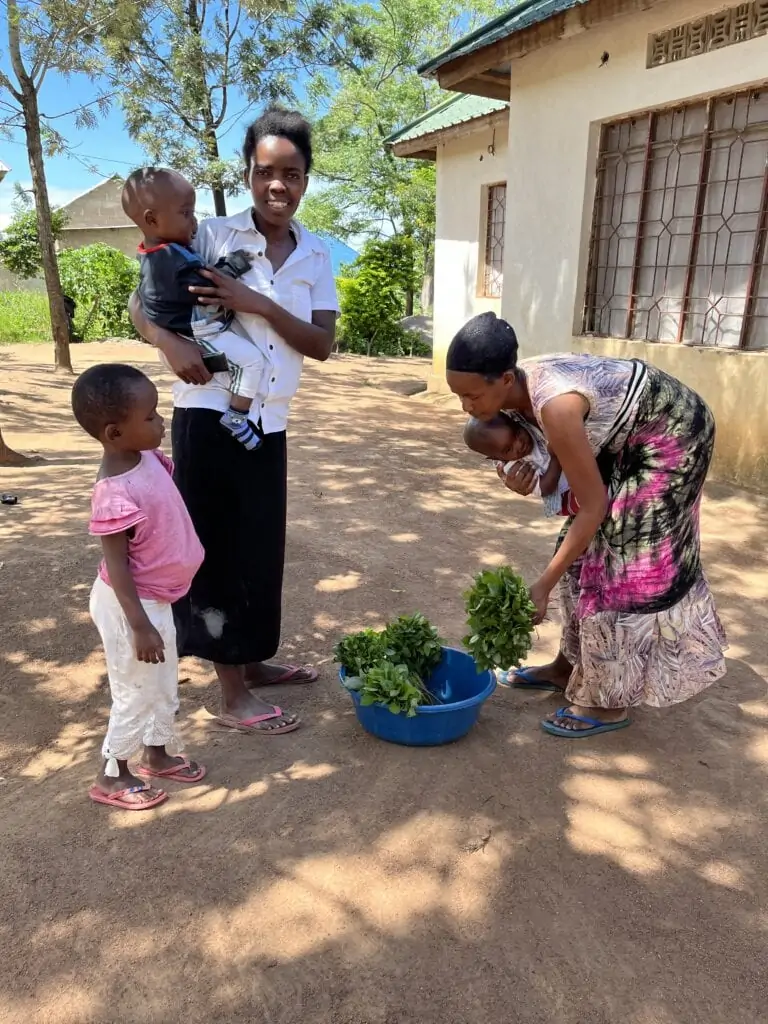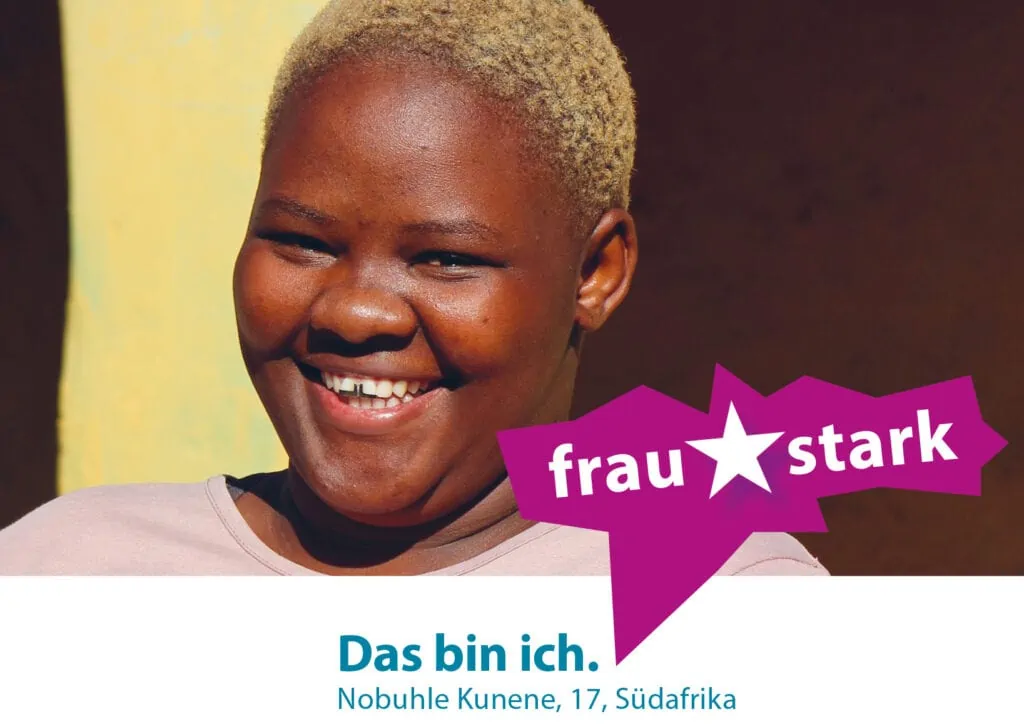It is a sad reality: girls and women in many parts of the world are still exploited and mistreated because of their gender. With our projects in southern Africa and Latin America, we give them the chance to take control of their lives and build a more secure future.
Mariam John* is 21 years young and gives everything to keep herself and her two small children afloat. Abandoned by her partner and rejected by her own family, the young woman has regained the courage to shape her own life and take responsibility for her two children. Her story is exemplary for the fate of many adolescent girls in southern Africa and shows how much strength they have when they receive self-confidence and support. After her father died at an early age, Mariam lived with her mother and siblings in the big city of Mwanza. She became pregnant for the first time at the age of 17. She is not an isolated case: in Tanzania, one in five girls becomes pregnant before the age of majority. Contraception and sexuality are traditionally taboo.
Hope for a better life
Mariam's boyfriend at the time was almost ten years older than her. He approached her when she was selling peanuts on the street after school to contribute to the family's livelihood. He gave her clothes, some food, and small amounts of money - but above all, he promised her a good, better, and more carefree life. Mariam left school pregnant and gave birth to daughter Kara. When she was pregnant again, her partner tested positive for HIV, whereupon he separated from Mariam and left her to her fate. Mariam and her child had not contracted the virus. The young mother made her way back to her family with her daughter and newborn son - hoping to find a home there again. However, her mother and siblings did not take her back and Mariam was left to fend for herself.
Escape from poverty
In her distress, she learned about Ebli. Our partner organization in Mwanza is committed to helping young mothers who have not completed school to escape poverty through their own efforts, thanks to education and training. Mariam, who was accepted into the program for young mothers, also benefited from this. At Ebli, she found emotional support, met women with a similar fate and learned to accept her situation. Mariam is a fighter, today she has her own small business thanks to the support: she sells corn to finance her living. And she has dreams again: Mariam wants to give her children access to school and a healthy life. She talks to other young women about this, informs them of their rights and motivates them to continue attending school. Other issues close to her heart are contraception, unwanted pregnancies and false promises - so that other girls are spared the fate that befell her.

Strengthening the talents of young people
The diagnosis of AIDS also changed the life of Nobuhle Kunene* from South Africa. After both her parents died of HIV, the 17-year-old now lives with her four younger siblings with her grandparents in the townships of the Kwa Zulu-Natal region. Because she had to take care of her siblings and the household, she dropped out of school. At the time, Nobuhle was depressed and had no prospects. This changed when she became active in the youth center sponsored by our partner organization Dlalanathi. The organization strengthens the talents of young people in South Africa, encourages them to pursue an education and become actively involved in society. For Nobuhle, the contact with Dlalanathi was very helpful: She came together with like-minded young people in a protected space, learned to draw up personal, realistic training plans so that she could stand on her own two feet. As a result, she was taught the basics of organic vegetable gardening in a workshop and began growing her own produce. Today, she sells hot peppers, chilies and cabbage at the market; this way, she can provide for herself and her siblings. Nobuhle has made the most of her opportunity and is proud of her own small project, which gives her the independence and healthy self-confidence she needs. Young people like Nobuhle emerge strengthened from the Dlalanathi project and thus have the strength to support each other and, for example, help each other out with home-grown produce.
Self-determined and free
Empowering girls and women - this is one of the declared goals of terre des hommes switzerland. Because girls and women who are disadvantaged solely because of their gender need protection and the chance to actively shape their future. Together with our projects and the involvement of young people on site, terre des hommes schweiz is committed to protecting young women from exploitation and violence and helping them to lead a self-determined life. Education plays a major role in all projects, because girls and young women in particular need to know how to prevent unwanted pregnancies and take care of their health in a self-determined way. Courses on sexual and reproductive health help them to do this. In a further step, it is also important to strengthen women's entrepreneurial skills so that they can earn their own living and live independently.
In the spirit of the 2030 Agenda
With our commitment, we actively contribute to implementing the United Nations Sustainable Development Goals (SDGs), which are formulated in the 2030 Agenda. Goal 3 explicitly refers to health, Goal 5 to gender equality and self-determination for all women and girls. Empowering women means investing in a more sustainable world. With partner organizations such as Ebli and Dlalanathi, terre des hommes switzerland is working with young women such as Mariam John* and Nobuhle Kunene* for fairer living conditions. The two are the best proof that women are able to provide for themselves and their families and make an economic contribution - if they are given the chance.
* Names changed by the editors.
Author: Valerie Wendenburg, Media and Communication at terre des hommes switzerland


